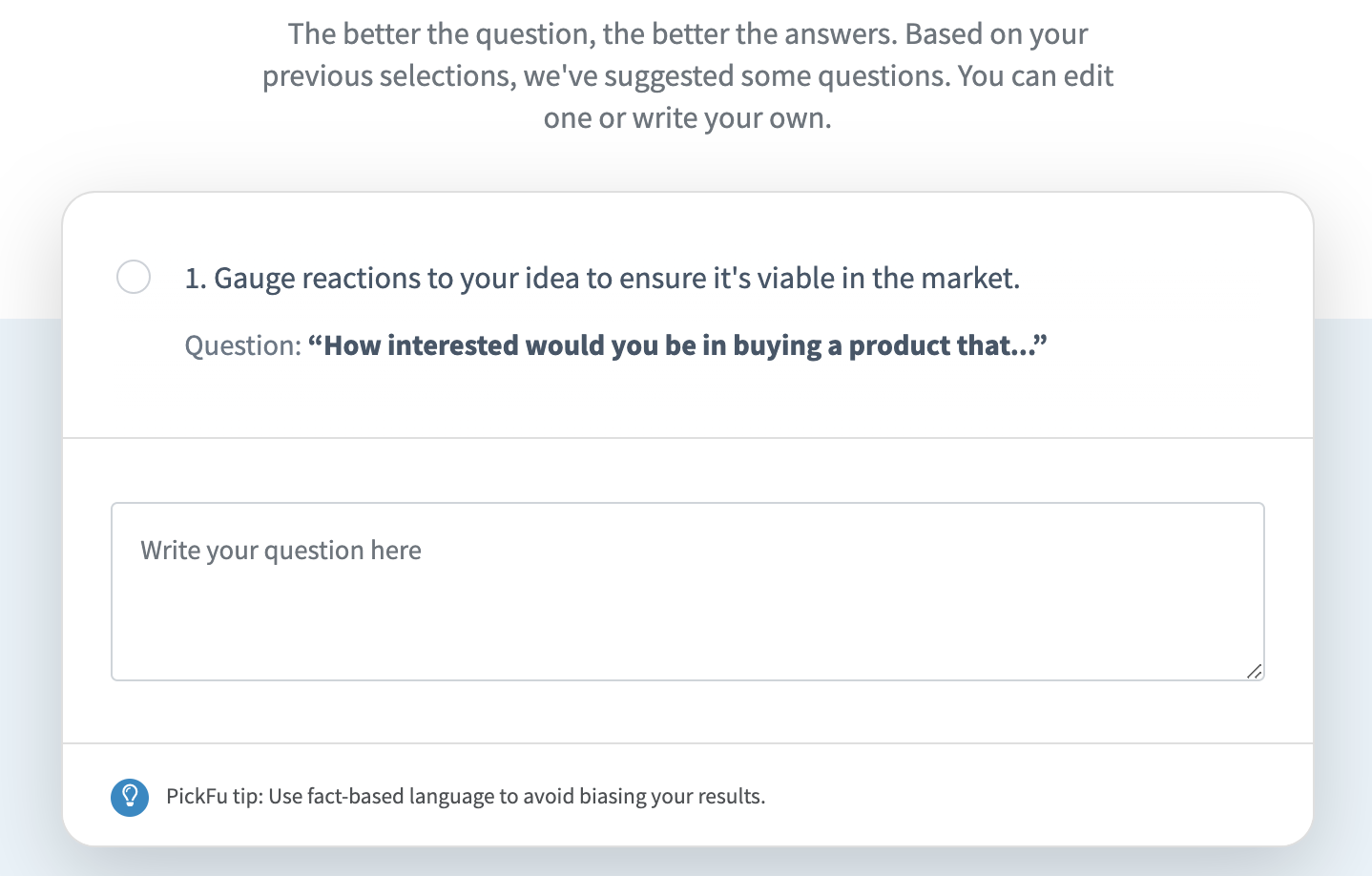Looking for the next great business idea? You might want to talk to students in the online MBA program at Washington State University’s Carson College of Business.
After months of learning about operations, finance, strategic planning, and management, students come to the capstone course led by professor Michael S. Jordan. In this final lap of their graduate studies, they create a business plan for a product they know people want and need.
How are they so sure? They verify their ideas using PickFu.
Being incorporated into a university’s curriculum is a first for PickFu. Here’s how WSU’s MBA students use the online polling service to innovate in the classroom and prepare themselves for the next step in their careers.
The class: Finding opportunities to innovate
Jordan is an entrepreneur. He’s started, led, merged, and sold a number of companies in the tech space.
So he’s always on the lookout — but not for ideas. Rather, he focuses on what he calls “high-potential opportunities for innovation.”
The capstone course, a two-class series, is designed for students to find these opportunities.
The course operates on the “jobs to be done” theory. You, the consumer, buy a product or service to help get a “job” done. Ideally, that product helps you do the job well. If it doesn’t, you’ll probably ditch it for a product that will.
For the first part of the course, called Capstone A, students set out to answer these questions: what are the jobs people need to get done? How important are these jobs? In what ways are people struggling to get the jobs done with existing solutions?
The problem: Getting consumer feedback in a virtual classroom
Students work in teams of three or four. They come up with five jobs, then whittle them down to the most promising two.
Ordinarily, students would interview and observe people face-to-face about the jobs they’ve identified and what might motivate them to switch to a better solution.
“This kind of rich qualitative data cannot be obtained via conventional surveys, polls, and secondary data sources,” the course instructions explain. “You actually have to interview customers directly to understand the job context. Understanding this context will inform you as to whether you’ve identified a high-potential opportunity worth pursuing (or not).”
Problem is, in-person interviews aren’t feasible given the virtual classroom setting, students’ schedules, and time and budget constraints.
Still, they need outside feedback from real people to help them determine which of their two jobs is worth pursuing for the second half of the capstone course.
That’s where PickFu comes in.
The solution: Open-ended polls yield quick qualitative results
Jordan found PickFu while searching online for quick and affordable feedback platforms. He introduced it to his students in early 2020.
“There really aren’t a lot of solutions out there,” he says. (Opportunity!)
PickFu’s Open-ended poll format gives students the flexibility to ask a detailed question, almost like an interview, and get in-depth written responses in return, that same day.
When creating their polls, students state the job — picking up and disposing of dog poop, for example. They ask respondents to comment on the importance of that job and whether they’re having problems doing it. For the dog poop example, students might ask respondents about the effectiveness of their current poop-scooping method.
Students run four polls, two for each job they need feedback on. Each poll surveys a general audience of 50 respondents. Students assign a code to each respondent’s comment, then sort the feedback according to the codes to see which job has the most potential as an opportunity for innovation.
From there, it’s on to Capstone B, the second part of the course, where they design a solution that will get the job done.
Goodbye, plastic doggie poop bags. Hello, new and improved poop scooper.
The impact: Verify with consumer feedback
Using PickFu, students see that the more clearly worded and structured their survey, the better the results.
They also know that without feedback from real people when developing their business plan, they’re just guessing at what might be a hit — or a flop.
“To avoid failure, you need to verify,” Jordan says. “You don’t want assumptions. You want knowledge. And the only way to do that is to interact with customers.”
Jordan sees an opportunity for more colleges and universities to use PickFu as a curriculum tool within their entrepreneurship courses and programs.
“They all start with generating ideas or opportunities, and PickFu is a cheap and easy way to get feedback on them,” he says.






